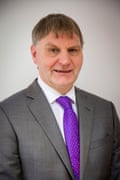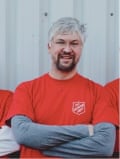It’s time to submit your vote for two awards, both of which will be announced at the Guardian Sustainable Business Awards 2015 on 29 April.
Sustainable business leader of the year 2015
This award will be given to a leader who has shown dedication and bravery in progressing the sustainable business agenda, both within their own organisation and sector as a whole.
Unsung hero of the year 2015
This award is for an employee in the engine room of sustainability who has gone beyond the call of duty to drive change in their organisation, and perhaps has not been given the credit deserved.
How does the process work?
This shortlist was created based on reader nominations. You now have the chance to vote for the winner by reading the profiles below and using the form here. Voting will close on 10 April.
Nominees for leader of the year

David Train, founder, The Main Academy
David is a former Olympic coach and founder of the Main Academy and the Paddle for Life programme. He has work tirelessly for more than 20 years to establish a set of tools based around a floating classroom - the Bell Boat - all of which are designed to help the world take the first step towards solving the problems connected to climate change. David has devoted his pension and literally all of his waking hours to encourage leaders (locally, nationally and internationally), to embrace the Paddle for Life project. He has had letters of support from prime ministers and ambassadors alike, and his methods are used daily by youngsters in Worcestershire. But, the project needs wider support and David, now in his 70s needs to be celebrated for all he has done for future generations.
Ramsay Dunning, general manager, Co-Operative Energy

Ramsay has worked tirelessly to ensure that Co-operative Energy can offer low-carbon energy to all its customers - and not just a select few. From the outset, he pledged that the carbon content of electricity would remain less than half the national average. To date, this pledge has been exceeded by some degree (2013-14: 68% renewable) - and business has grown to nearly 250,000 customers since Co-operative Energy was launched in 2011. No other green electricity company can match this rate of growth.
He has also been a major champion of community energy. Co-operative Energy has actively sought to source power from community generation initiatives from the outset, and now has 15 agreements with community groups. Uniquely, a user chooser facility has been developed that allows customers to control the energy mix of the electricity they buy. Customers visit an energy hub website, register and then choose the generation type they prefer and, if relevant, the specific generation site to be utilised (ie community windfarms in Cumbria and Cambridgeshire, hydro-electric co-ops at Whitby Esk and Neen Sollars, or solar installations in Somerset and Gloucester).
Ramsay has engaged extensively with policymakers and lobbied for a more supportive regime for community energy, especially with regard to tax relief (and the necessary continuance of EIS qualification) and a right to invest for UK citizens.
Arthur Kay, co-founder and CEO, bio-bean limited

Bio-bean is an award-winning green energy company that has industrialised the process of recycling waste coffee grounds into advanced biofuels, used for powering buildings and transport systems. Bio-bean work with waste management companies and brokers within existing supply chains to aggregate and deliver waste coffee grounds to our processing facility. We produce and sell coffee biomass pellets, for use in biomass boilers, and biodiesel, which we extract from waste coffee grounds using our patented technology.
Arthur Kay is an award-winning designer and entrepreneur. Having studied architecture at The Bartlett, University College London, Arthur came up with the idea of bio-bean while still a student. To date, the company has built their first factory in the UK, employed a team of more than 15 people and raised more than $3m (£2.02m) in financing, including backing from the Ellen MacArthur Foundation, Shell, UK Trade and Investment , the Greater London Authority, RBS, TATA and Santander. Arthur draws from both the worlds of art and science, and bio-bean is the result of the subsequent cross-fertilisation of ideas. He looks to meet the challenges of the modern world with a spirit of curiosity and experimentation.
Arthur has recently spoken at TEDx Warwick and We Day about seeing challenges as opportunities and empowering the sustainable urban designer in us all.
Louise Nicholls, head of responsible sourcing, M&S
Louise has been at the heart of driving forward responsible sourcing at M&S Food and Plan A. She initially developed and managed M&S’ leading Ethical Trading programme 10 years ago and now manages implementation and strategic development of M&S Plan A within the foods team. Louise is responsible for a wide range of sustainability challenges such as food waste, raw materials, ethical trade, water among others. Louise’s approach is not just internally facing. She was a founding board member of Sedex over 10 years ago and still sits on this board. She has also been instrumental in many stakeholder initiatves such as the Gangmasters Licensing Authority (GLA), the Ethical Trading Initiative (ETI), and helping with community shop. Louise is constantly pushing the boundaries internally and externally and isn’t afraid to make an unpopular decision.
Paul Polak, CEO and chairman, Windhorse International, Inc., Affordable Village Solar, Inc. and Transform Energy Corp

Paul Polak has devoted the last 35 years of his life to identifying and scaling methods of poverty alleviation. At 81 years old, Paul has pioneered countless initiatives over his lifetime to increase the incomes and improve the livelihoods of those living in poverty around the world. In 1981, Paul founded the non-profit International Development Enterprises (IDE) which has brought more than 20 million people out of poverty through sustainable, market-based approaches.
In 2010, Paul launched three social businesses each designed to reach scale and address a key global sustainability challenge.
The first business, Spring Health, is providing clean drinking water to more than 100,000 people in 250 villages on a daily basis through innovative and replicable decentralised last-mile distribution models in India. The second business, Affordable Village Solar, created a solar water-pumping system that is 80% less expensive than competitors in the market. This technology will replace greenhouse gas emitting diesel pumps around the world. The third business, Transform Energy, is designing and prototyping a low-cost system that will be able to convert agriculture waste and invasive species of biomass into a green coal substitute through the process of torrefaction, greatly decreasing carbon emissions while increasing income for rural poor in the process.
Paul is an innovator, trailblazer, and compassionate visionary who leads by example.
Nominees for unsung hero of the year
Keith Young, workshop supervisor, Recycles project, The Salvation Army

Keith has worked tirelessly to establish Recycles, a bike refurbishment and training project at Ilford Salvation Army, as a viable social enterprise. Since the project was accredited to deliver a City and Guilds training course, Keith has trained people with a specialist emphasis on restoring bikes that have been thrown away. He has also developed partnerships with other organisations so that Ilford Salvation Army now distributes reclaimed paint and sells cycling panniers made out of used items in order to generate new income streams for Recycles.
Keith not only brings bikes, and disposed items back to life, but he also reinvigorates people who have found themselves excluded from society.
Emma Marsh, head of Love Food Hate Waste campaign, WRAP

Emma is a tireless campaigner on food waste and can take considerable personal credit for leading the charge that resulted in a 21% reduction in avoidable food waste in the UK between 2007 and 2012.
Emma is passionate and hugely knowledgeable and a great convener of others too. She cuts through the bureaucracy that sometimes bedevils government-funded projects. She is strategic yet hugely practical too. She has been instrumental in Love Food Hate Waste’s success in building collaboration across the food sector. She’s also one of the nicest people you could meet!
James Leaton, research director, Carbon Tracker Initiative

James Leaton has been leading the thinktank’s financial analysis since 2010. He was lead author of the Unburnable Carbon 2013: Wasted Capital and Stranded Assets report (pdf), which has introduced the concept of carbon bubble, helping to revolutionise the debate on climate change by translating it into a material and urgent issue for the financial community.
Since 2013, James has been deepening Carbon Tracker’s research focus, bringing it to a new level with the production of a series of reports on oil, coal and gas (Carbon Supply Cost Curves: Evaluating Financial Risk to Oil and Coal Capital Expenditures 2014) and the development of a new global warming indicator – Capex Tracker 2015 - grounded in financial analysis.
Thanks to James’s unique ability to distil highly complex financial concepts into those that are powerful and accessible, ideas such as “unburnable carbon” and “stranded assets” have entered the mainstream. As a result, companies, investors and policymakers are openly debating how global warming can impact the financial system.
James combines analytical work with engagement at every opportunity. He has been actively presenting Carbon Tracker’s research findings to investors, asset managers, investment banks and pension funds at a global level, strengthening Carbon Tracker’s recognition in the financial community. His work has caught the attention of mainstream financial and business media worldwide, including the Financial Times, The New York Times, Washington Post, Bloomberg, Reuters, CNBC, and the Globe and Mail.
Richard Morris, co-founder and CEO, TheGivingMachine

Richard is the founder and CEO of TheGivingMachine and he is also the author of Givenomics. He is one of those unusual people who lives and breathes the ethics of philanthropy while also being involved in the charitable and social sector.
He has worked tirelessly to bring together consumers, retailers and the charitable causes that consumers care about - all for mutual sustainable benefit.
TheGivingMachine impacts more than 8,000 charities, 80,000 consumers and more than 1,500 retailers - with more than 1m donations totaling nearly £900,000.
Richard has personally ensured the values and ethics of charitable giving are maintained to the highest standards. He has provided work opportunities to mums keen to enter back into the workforce and he even ensures his own children contribute to charities.
Richard and the family that is TheGivingMachine work tirelessly to help online shoppers to give to their favourite charities, at no cost to themselves. Affiliate payments from online retailers are leveraged - who in turn benefit from increased sales, and probably more importantly a strong connection with their customers, through sustainable support of local and national causes across the UK. He calls this “givenomics” and it is about building sustainability within commercial enterprises so there are powerful outcomes for good.
